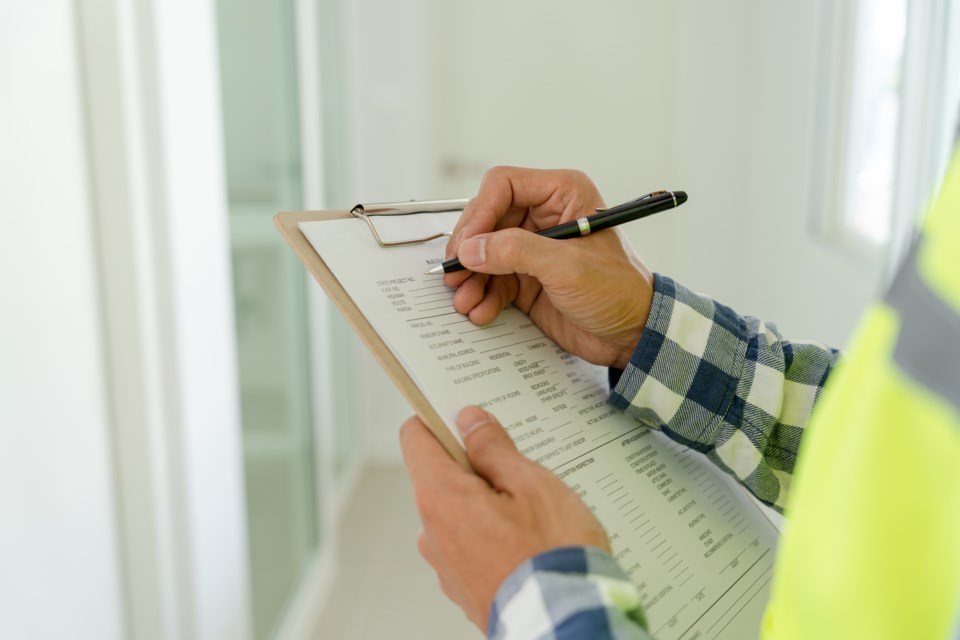When you’re buying a house, things move fast. But one thing you shouldn’t skimp on is the home inspection. Bluntly put, never remove your subject to inspection when making an offer. There’s just too much at stake. Understanding and being prepared for the inspection is extremely important, which is where this guide and checklist comes in. We’ve put together the ultimate home inspection checklist for Canadians looking to buy the house of their dreams.
What is a home inspection?
The Home Inspectors Association BC states that “A home inspection is a limited, non-invasive, visual examination of the current condition of a residential building… designed to report observed deficiencies within specific systems and components of a home. A home inspection provides a description of the condition of the home based on the... visible and apparent condition of the structure….”
Sometimes, when we’re looking for a new home, we tend to get a superficial glance at all the beautiful aspects of it. Maybe the stunning maple tree out front caught your eye or the wood-burning fireplace gives you “let’s roast chestnuts at Christmas” kind of vibes.
While a quick glance might make you feel warm and fuzzy, you won’t always get the full picture from the person selling the house, whether that’s the homeowner or the agent in charge of the property. That tree might be about to drop a branch on your 18-year-old roof and that fireplace might be less warm and cozy and more of a fire hazard.
Buying a home is a massive investment and one of the biggest decisions a person can make in their lifetime. That’s why a proper home inspection is always recommended before you move in.
How to prepare for a home inspection
Usually, there are three things that you should prepare for before doing a home inspection at your (potential) new home:
1. Use a home inspection checklist
When you’re inspecting the new house, you want to cover all the necessary items. But don’t waste time analyzing items you’ve already checked. (Here's a downloadable checklist that you can download to take with you to the inspection).
2. Bring a trusted companion along for the inspection
Nobody can spot all the issues by themselves. We recommend bringing a friend, partner or family member along with you for the inspection. Someone who’s built a wood deck, knows the difference between copper and aluminum wiring and isn’t afraid to crawl around in the attic and look for signs of critters. That kind of person.
If you miss anything, your companion can also look out for necessary items on the checklist. It’s also nice to have a second set of ears. Plus, don’t be afraid to ask your companion to take notes to refer back to later.
3. Make sure to hire a professional inspector
Using a qualified home inspector will give you peace of mind in the long term. Their job is to look at houses and ensure that everything is in working order. In B.C., home inspectors must legally hold a licence with the province and you may request to see it to ensure it’s up-to-date. They also have to pass a certification exam and go through training.
But, they don’t have to be a member of the Home Inspectors Association BC, CanNACHI, or CAHPI—much like how not every real estate agent is a realtor. These organizations have their own standards for their inspectors, including continuing education requirements and following a code of ethics.
Regardless of what organization they belong to, choose a legally licensed inspector with a good reputation known for producing readable, thorough reports quickly. Don’t be tempted to pick the most affordable, either. If you cheap out now, it may come out far more expensive later. Consider multiple candidates, ask friends who recently bought their own homes which inspector they used and read consumer reviews.
Home inspections are not graded pass or fail. Rather, the inspector will give you a report with a deficiency list. This list contains the problems the inspector found with your house. That might include anything from missing smoke alarms to major foundation cracks. Read it carefully. You’ll have to approve it as part of your subject removal process, so ensure you request it’s detailed and includes photos.
Ask clarifying questions if you’re unsure of anything. An inspector may recommend additional investigations by further qualified professionals, such as foundation experts, plumbers and electricians.
It’s ultimately your job to determine how much the findings matter, though. Your inspector will not tell you whether you should or should not buy a home. That’s up to you.
But remember that highlighting minor items (like chipping paint or scuffs and scrapes) is not the best way to renegotiate your offer. And if you’re doing an inspection on an older home, don’t be surprised by a long deficiency list. Inspections take place during subject removal, after all, and give you the chance to find major problems that may call off the deal. Otherwise, accept that your inspector will likely find minor things that need fixing or renovating a little later—it’s all part of buying a home.


